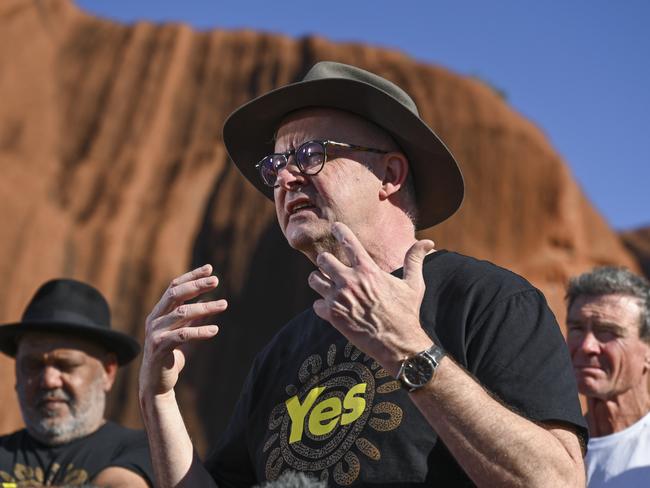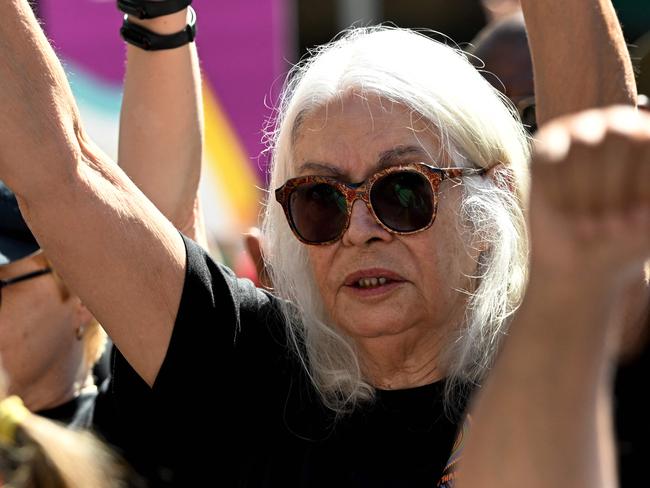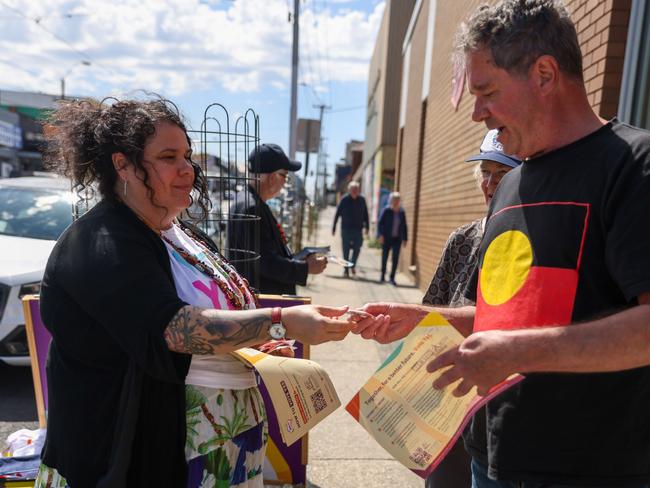The Telegraph: Yes for a better way forward, No to a divided nation
Tomorrow Australians will decide the fate of the proposed Voice to Parliament referendum. It’s not a step to be taken lightly.
Opinion
Don't miss out on the headlines from Opinion. Followed categories will be added to My News.
Tomorrow Australians will decide the fate of the proposed Voice to Parliament referendum.
Throughout the campaign, which stretches back to election night in May 2022, Prime Minister Anthony Albanese has been at great pains to assure us that the vote is simply about whether or not to recognise Aboriginal Australians by establishing a Voice to Parliament in the Constitution.
If Australians vote Yes, this will happen through the creation of an entirely new section and chapter in the Constitution, one which can only later be modified or removed via another referendum.
This is not a step to be taken lightly.
Australia’s Constitution is one of the most stable in the world – with good reason. Its authors deliberately took the best of Britain’s constitutional arrangements and added to them a hefty dose of American federalism to create a system that was and remains both durable and democratic.
The point of the double majority required to change or add to it is deliberate and means that any referendum must be taken seriously.
Once made, mistakes are hard to undo.
Which brings us to tomorrow. If the Voice proposal succeeds, it would fulfil the first leg of the Prime Minister’s election night promise to deliver the Uluru Statement in full – Voice, treaty, and truth-telling.

From the start, Mr Albanese has sought to assure us that the request is “modest” and the proposal “safe”, and that despite its ability to proactively offer its opinion and advice on anything that affects Aboriginal people – not just to parliament but to government bureaucrats as well – there is no threat to the orderly workings of government.
Yet despite finding plenty of friends, this argument has been disputed by many others.
Some, such as former High Court Justice Ian Callinan, have warned that there could be “a decade or more” of litigation arising out of the Voice.
Even some of the Voice’s own supporters, such as constitutional law professor Greg Craven, have called the Voice model “fatally flawed”.
There are other questions, too, such as how can a Voice with (we are told) no authority actually change things?
Mr Albanese’s remarks last year that it would be a “brave” government that ignored the Voice, suggests the answer.
Likewise, who will be on it and how will they be appointed? The possibility of a mix of elected and selected members suggests a body that could quickly be dominated by activists who would then use the moral power of the Voice to push their own agendas.
And, if better outcomes can be achieved by listening to Aboriginal people on the ground, what is stopping the government and its multibillion-dollar National Indigenous Australians Agency from doing just that?
Much has also been made of the Yes camp’s missteps. These are indeed important to highlight, because they also highlight the Voice’s flaws.
Firstly, Yes has failed to explain what the Voice is.
Its struggles to define it prompted perhaps the most potent No message: If you don’t know, vote No.
Yes slammed this slogan with the rejoinder: If you don’t know, find out. Trouble is, they’ve made it hard to do so.
Moreover, Mr Albanese has not helped in this regard.
After a series of contentious interviews in the media where he was challenged on the details, he shifted tack to doing mostly softball appearances about the Voice with less-challenging outlets.
His claim, too, that the Uluru Statement from the Heart is only one page long despite the repeated statements of its authors has made the campaign look tricky.
The Yes camp has also been poorly served by some of its biggest promoters and its overall strategy – from the moment the Prime Minister trotted out former NBA star Shaquille O’Neal to endorse it – has been plagued by miscues.
Framing Alan Joyce, the then-boss of one of the least loved and most complained about brands in Australia, as one of the poster boys of Yes, reinforced a growing perception that this was an elitist project.
Not the best optics if this entire enterprise is about empowering the worst off.
The dismissal of ordinary Australians as racist and ignorant by the likes of Professor Marcia Langton, historical but still recent comments by Thomas Mayo about reparations, and the abuse dished out by Noel Pearson before he decided to change his tune, have also hurt the cause.

And while there have been outlandish arguments made by figures on both sides of the debate, the smearing of people with serious and legitimate concerns about the Voice as being ignorant, victims of misinformation, or simply bigots, suggests a failure by Yes advocates to truly engage in a civil debate.
This elitist attitude – best summed up as “vote yes, we know best” – more than anything else has made voters feel like they were not being levelled with, and that their best option was to vote No.
Most of all, though, in trying to weld a Voice to Parliament into the Constitution through a Yes vote, Mr Albanese has implicitly rejected the idea of reconciliation and instead suggested that Aboriginal people will need to be dealt with separately forever.
With all that in mind, The Daily Telegraph believes the Yes camp has failed to make the case for the Voice to Parliament on three counts.

One, it has not proven the Voice will substantively improve conditions for Indigenous Australians.
Two, it has not explained how this significant addition to the Constitution would not undermine the workings of government.
And three, it has failed to address concerns that inserting special rights for one particular race would divide the nation.
That said, no matter the result, it is critical that we as Australians embrace a positive mindset with a constructive plan to address real, on-the-ground issues across Indigenous communities.
A No vote is not a vote against uniting the nation around a practical plan to improve the conditions of these communities.
Instead, it is a vote to work out a better, more unifying way forward.



